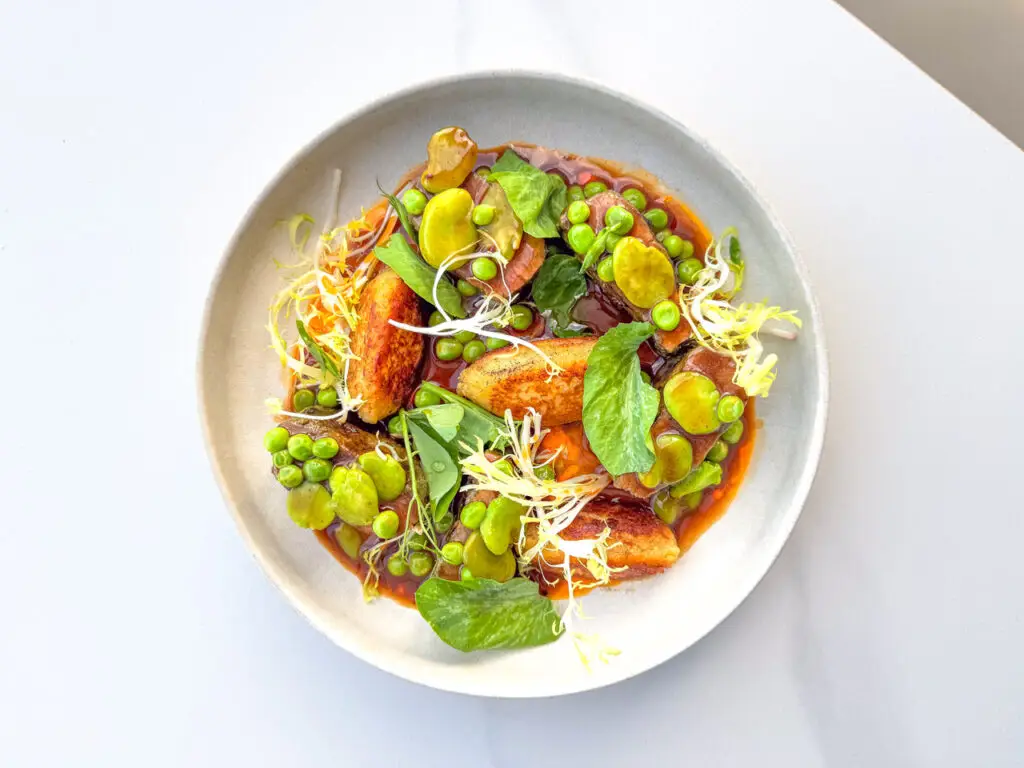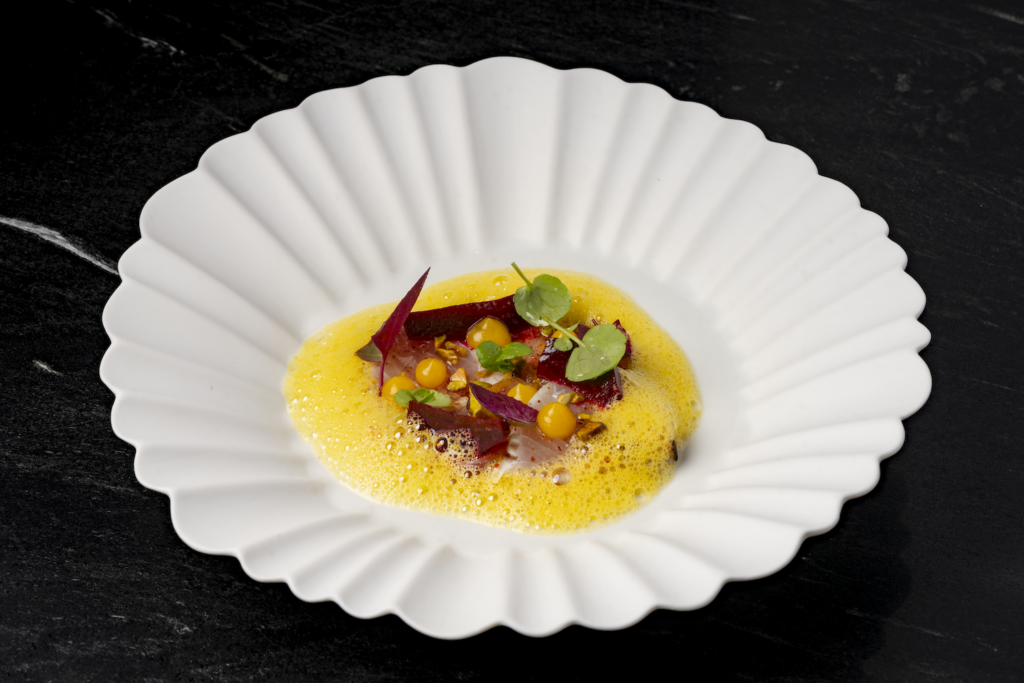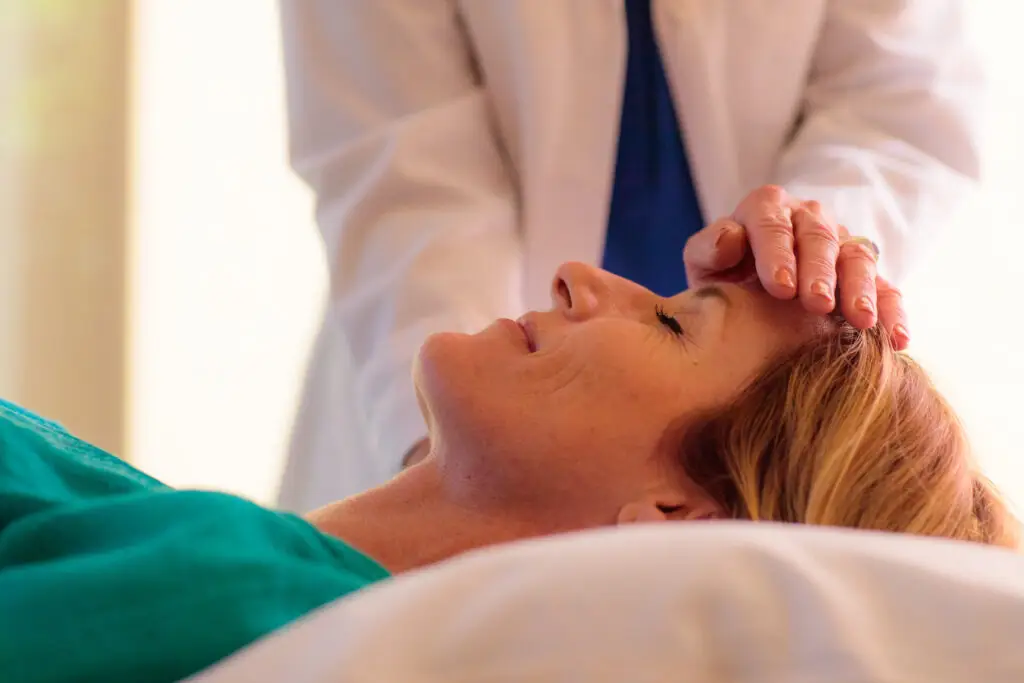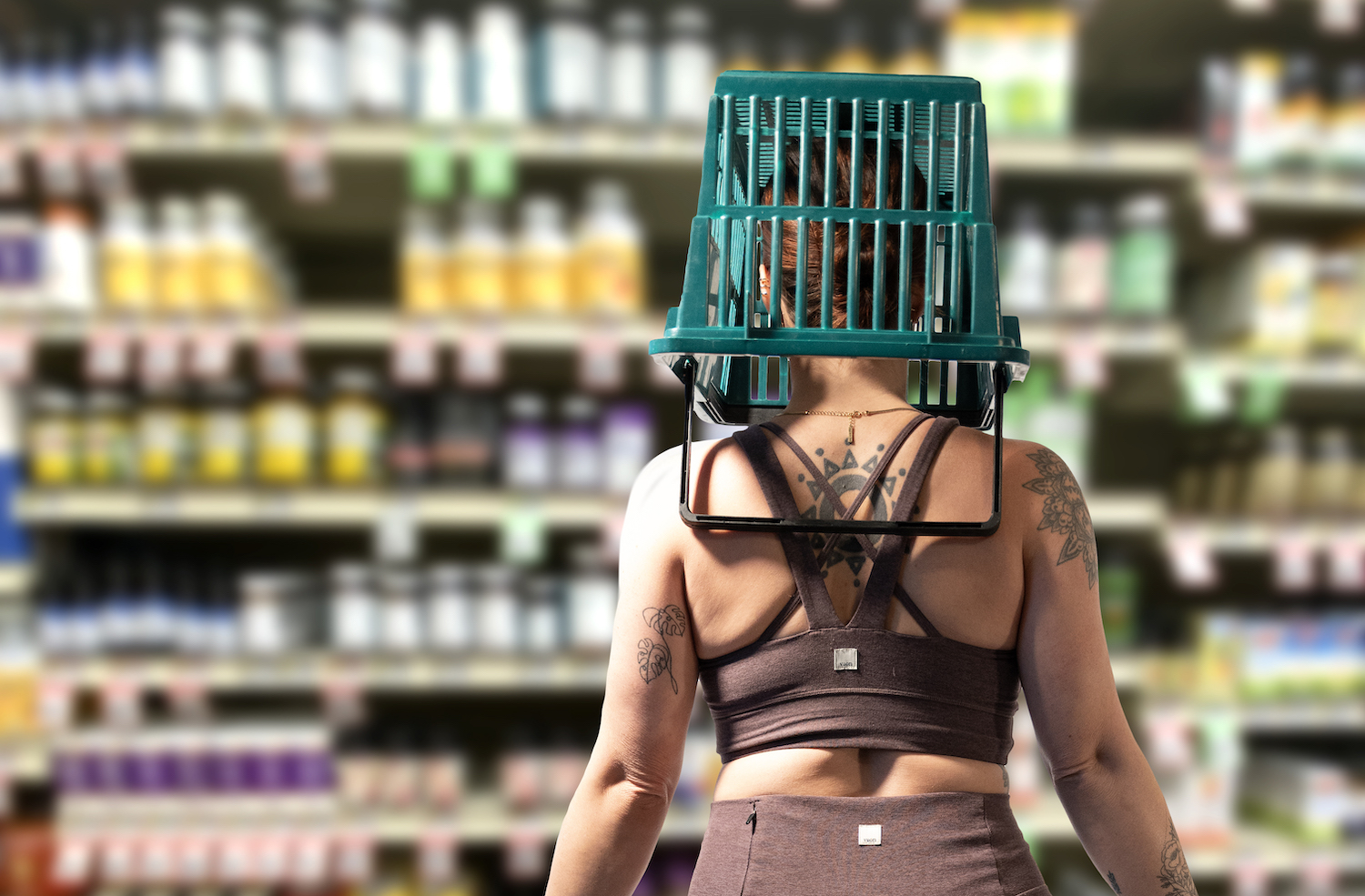I was 17 when, in an Elle article published in May 2015, Amanda Chantal Bacon told the world what she eats.
Bacon is the founder of Moon Juice, a Los Angeles–based supplement company and juice bar. She claimed to enjoy a daily menu full of ingredients many readers had to Google: shilajit resin, cordyceps, umeboshi paste. There were more supplement-laden drinks than actual food.
Bacon was lampooned, held up as the pinnacle of rich white woman absurdity. But I was—and still am—strangely mesmerized by her. She is beautiful, tranquil, convincingly earnest as a testament to the power of adaptogens (the Moon Juice origin story begins with Bacon naturally healing an autoimmune condition). Her food diary, farcical as it seemed, was also emblematic of a wider cultural shift away from dieting into “wellness”—a concept that played nicer with the concurrent body positivity and self-care movements.
It quickly became gauche (at least in my young, feminist circles) to discuss weight loss. But it was more and more acceptable to get real about what plagued us: irregular periods, hormonal acne, constant stomach aches, chronic fatigue. Instead of pretending none of us had bowel movements, women could declare that “hot girls have IBS” (never mind that I developed my own stomach issues in pursuit of hotness—a too-long course of antibiotics that banished my breakouts, but also my gut flora).
In response, the market for wellness tinctures, vitamins, and elixirs exploded, promising something even more seductive than mere thinness: a more vibrant, energetic, perfect self, free of maladies—and a new kind of influencer emerged as the industry’s poster girl.
Like Bacon, social media’s many wellness influencers offer a glimpse at who you could be should you truly invest in yourself. They, too, are often skinny, gorgeous, well-to-do white women. The influencer, however, occupies a more complicated position than the brand (or its founder). She makes her money by promoting products, whether that’s probiotic gummies or her own e-guides and cookbooks.
But she, even more than brands, must prove to you that what she vends is a vital part of a much bigger lifestyle shift—because if a single supplement could save you, why keep following her? She posts high- protein recipes, shares tips for keeping cortisol levels balanced on vacation, reminds you how miserable she was when she was sick like you.
Wellness influencers overwhelmingly promise that the changes they espouse will not only help you feel better, but look better, too. Many of the most popular TikToks on subjects like hormone balancing or gut healing follow a “before and after” format. In contrast to the puffy faces, bloated stomachs, and bumpy cheeks of the “before” days, the women in the “after” photos are slim and toned, with bright eyes, glowy skin, lustrous hair.
Some of these women have real education in health and nutrition, and several of the most successful built their platforms by promoting habits that are generally scientifically proven to make you healthier: taking walks; getting outside; eating fresh, unprocessed foods. These can be done without buying any particular product, though the influencers rarely acknowledge the privileges of time and money required to exercise and cook every day.
So, is wellness a scam? It is, of course, not that simple. Small lifestyle shifts—eating more protein, incorporating breathwork—personally helped me overcome seemingly insurmountable conditions, like fatigue and anxiety. And to ignore countless centuries of evidence supporting the efficacy of herbs, mushrooms, and other holistic healing methods seems myopic.
PARTNER CONTENT
Ultimately, the influencers are onto something: Wellness products probably work best when paired with other, more mundane forms of self-care. The next step is divorcing health and hotness, approaching wellness more as a means toward internal comfort than external upgrading.
Because, look—I wear makeup, slather on skincare, drizzle expensive oils onto my scalp. I’m not immune from wanting to be beautiful. But sometimes I’d just like my stomach to not hurt.





















